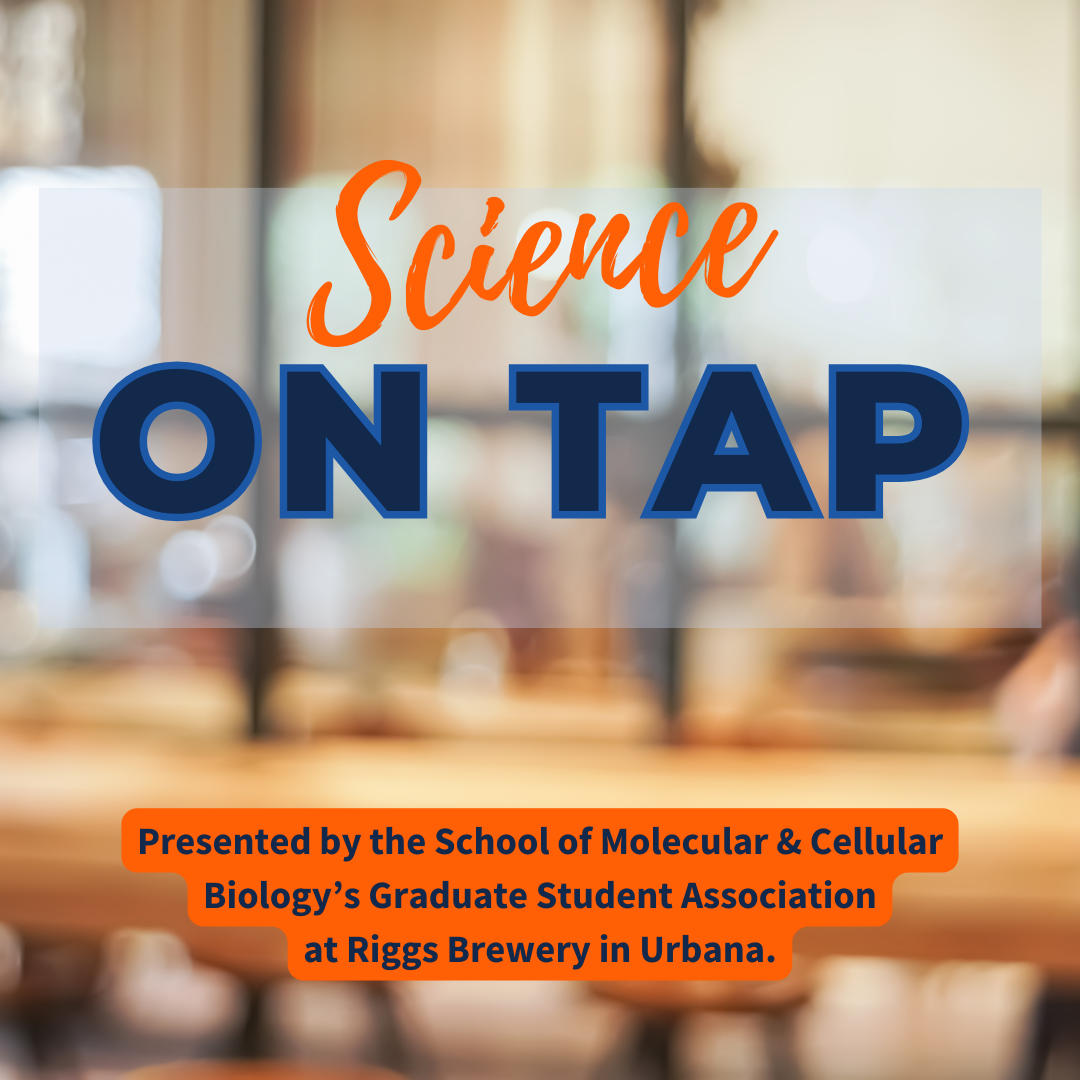
For six years, the School of Molecular & Cellular Biology’s Graduate Student Association’s “Science on Tap” has introduced a variety of biology-related topics to scientists and non-scientists over a cold drink at a local brewery.
“The vision behind [the series] is to spark conversation between graduate student researchers and the Champaign-Urbana community,” said Caroline Vermilya, a PhD candidate in the Department of Microbiology and MCB GSA’s outreach coordinator.
The event is usually hosted at Riggs Beer Company in Urbana. A typical Science on Tap event involves graduate students delivering a 20 to 60-minute talk about their own research or a general science topic. Previous themes have included bees and pollination, the role of nitrogen in soil health, and the nuances of getting sick.
The next seminar, “Talking Tomatoes: Fungal friends can help plants defend against very hungry caterpillars,” will be presented at 2:30 p.m. Sunday, April 14, by Erinn Dady of the School of Integrative Biology.
Traditionally, presenters are graduate students from the school’s four departments: Biochemistry, Cell & Developmental Biology, Microbiology, and Molecular & Integrative Physiology. However, the scope of topics has evolved, and participation has expanded to include presenters outside of the School of MCB.
“This has allowed us to touch on more science topics that may be of special interest to the public, but it has also increased dialogue and collaboration between various schools and departments at Illinois,” Vermilya said.
The event is a great occasion to foster public engagement in science, especially with complex topics like the different characteristics of wines and ways our body converts alcohol into energy.
“I am passionate about connecting scientists with the public, as well as making science accessible for all,” said Sierra Bedwell, a PhD candidate in the Department of Microbiology. She spoke at a Science on Tap session about the role of nitrogen producing microbes in agricultural and soil health. “Many of the issues that scientists are trying to tackle are world-affecting problems like climate change and disease; however, so much of the scientific literature is inaccessible to people who lack training in that specific field.”
The event also provides graduate students with the opportunity to practice their science communication skills by explaining complex topics and answering questions from the general audience.
“The biggest thing I learned in grad school was that I enjoyed science outreach,” said Maggie Murphree (MS, entomology, ’22), who presented about honeybees and unsung native bees. “I wanted to strengthen my presentation skills and presenting at Science on Tap was a great opportunity for that.”
Science on Tap is a perfect place for graduate students to learn from fellow graduate students and the greater Champaign-Urbana community.
“We had a great discussion with a lot of participation,” said Sophie Larsen, a PhD candidate in the Program of Ecology, Evolution, and Conservation Biology. Larsen discussed how diverse social factors can impact transmission and mortality of infectious diseases. “It was really valuable to hear people’s perspectives on topics like vaccine inequity and hesitancy - why that might be happening, and what we as a community can do about it.”
MCB GSA will continue to bring more exciting science topics and discussions to the local community through additional Science on Tap events.
“In the future for Science on Tap, we want to keep the public involved in science and ensure graduate students have a unique outlet for science communication and outreach,” Vermilya said. “The excitement for science is apparent and we plan to keep conversations about science open by continuing Science on Tap in 2024.”